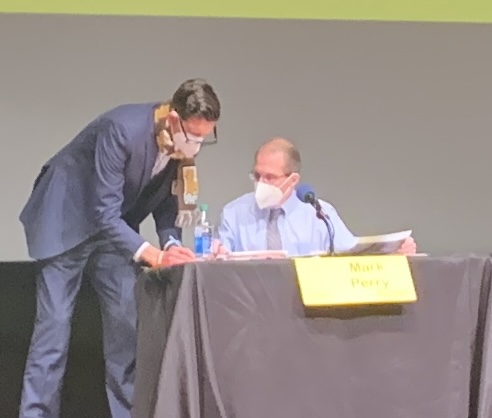HOLT, Mich. – For years, parents complained that school boards are not listening to students. Holt Public Schools is taking steps to fight that disconnect.
For the past five years, the school board has appointed student representatives to speak for the student body. The change has helped the Board, said Holt Public Schools Superintendent Dr. David Hornak.
“It allows our Board to have access to our students when they’re making decisions. They can look at one of the student representatives or both to say, ‘What do you think?’” Hornak said.
Paige Thompkins and Lukas Hartley, student representatives for the 2021-22 school year, said they appreciate the opportunity.
“It’s a very important position to have so that we can have our student voice be heard because in a lot of situations that’s not something that happens,” Thompkins said.

After candidates are selected by the staff, the student body votes on who will become their representatives to the Board. Hartley said the student election allows the students to take part in the decisions.
But Thompkins and Hartley are not stopping there. The two proposed creating a “Student Advisory Board” to help ensure a more diverse student perspective.
“We’re able to answer some questions, but there’s no way for two people to accurately represent every single person at the school. So, we’re trying to create a broader group,” Hartley said.
Hornak said, “As adults, we can sit around and try to make a decision that we think is going to land well, or if we create this student advisory committee we have a better shot of capturing student voices and knowing what our students are thinking at that point.”
A recent example is the district’s mask policy, Hornak said. If the advisory board had been created, the policy would have run the student representatives before coming to the Board of Education to get the student body’s thoughts on potential changes.
The program will include multiple students from each grade with different perspectives based on the groups they belong to. Thompkins and Hartley say this will include, “minority groups, LGBTQ+ groups, sports groups and more—anyone who has a major vested interest in policies and changes and funding stuff with the school.”
Hartley said, “I’m not a part of hardly any of those groups, so I want to make sure that I can accurately articulate what they’re feeling and the changes that they want to see.”